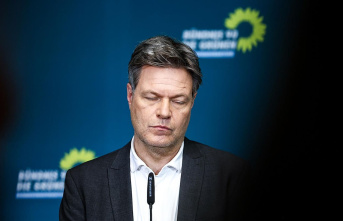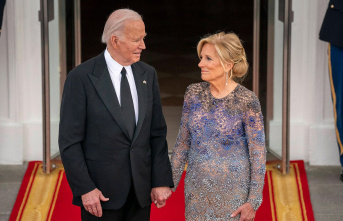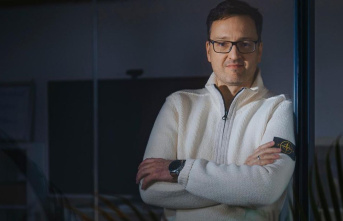Police investigations are continuing after the killings in the premises of Jehovah's Witnesses in Hamburg.
By Saturday evening, the police situation center had no new information on how the injured were doing after the crime. Funeral marches or commemorative events are also not known for this weekend.
In the shooting on Thursday in the north of Hamburg, 35-year-old Philipp F. shot seven people and himself. The police also counted an unborn child among the dead. Eight people were injured, four of them were in mortal danger. The perpetrator had fired more than 100 times with a semi-automatic pistol. Hamburg's police chief Ralf Martin Meyer said at a press conference that he had been in legal possession of this weapon since December 12. According to information from security circles, the shooter was not known to be an extremist.
Perpetrator had not left Jehovah's Witnesses on good terms
The 35-year-old Philipp F. was a former member of the Hamburg community of Jehovah's Witnesses, which he left voluntarily a year and a half ago, but apparently not on good terms, as the police, prosecutors and interior authorities said on Friday.
Philipp F. was a marksman, had a gun license and had only recently been visited by the gun authority. In January, the authorities received an anonymous tip about a possible mental illness from Philipp F. This was visited unannounced in early February by two officials from the Weapons Authority.
At that time there were no relevant complaints, the legal options had been exhausted, said Meyer. The overall circumstances would not have given the officials any clues "that could have indicated a mental illness". At this point, Philipp F. then disappeared from the authorities' radar again, until last Thursday, until the act of violence that Hamburg's Interior Senator Andy Grote (SPD) later described as "the worst crime in our city's recent history".
Even several days after the fact, questions arise. Did the perpetrator get his gun too easily or were anonymous tips that the man was mentally disturbed not taken seriously? Would it have caught the eye of a psychiatrist or psychologist? According to the first findings, nothing was known about an earlier drug conspicuousness. There is no corresponding entry regarding drug offenses, said a spokesman for the Bavarian Ministry of the Interior. Previously there had been reports of possible drug abuse by Philipp F. in the past. He comes from Memmingen in Bavaria and has been registered in Hamburg since 2015.
The shooting has brought the ongoing political discussion about stricter gun laws back into focus. One day after the crime, Federal Interior Minister Nancy Faeser (SPD) announced that she wanted to review the draft amendment to the Weapons Act. You have to think about "how we can go back to the draft law with this recent terrible amok attack in Hamburg to see: Are there still gaps, or where was it exactly right?" Faeser said on Friday evening to the ARD "Tagesthemen".
Even if the topic of gun law has not yet been on the agenda of the Bundestag's internal affairs committee, it should continue to cause discussions. Most recently, Faeser had turned the hunters' and riflemen's associations against her with her plans for more controls and regulations. These in turn received support from the FDP.
The deputy FDP party leader Wolfgang Kubicki told the Welt television channel: "The natural reaction of initially wanting to ban everything is out of the question. That's an understandable human reaction, but when in doubt it doesn't help."











